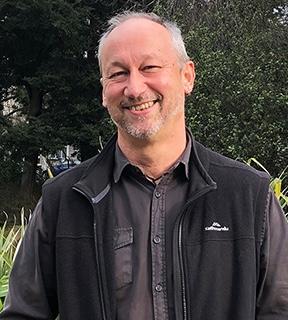
The Gene Technology Bill is currently making its way through Parliament. Associate Professor Phillip Wilcox says if the Bill removes Māori consultation requirements, not only Māori - but the wider New Zealand public will be impacted.
Phillip (Ngāti Rakaipaaka, Ngāti Kahungunu ki te Wairoa, Rongomaiwahine) is a quantitative geneticist and bioethicist at Ōtākou Whakaihu Waka, The University of Otāgo. He believes genetic technologies need a comprehensive tikanga-based framework to mitigate the risks of lab-created, genetically modified organisms introduced into the environment. He says the current Bill has no such framework.
“This Bill also removes Māori from the wider conversation by limiting Māori input to only modifications of taonga species. This is a breach of the Treaty because te taiao is a taonga, and we have rights of kaitiakitanga over anything that might impact te taiao. Modifications of non-taonga species could have negative impacts on the taiao, and on taonga species,” he says.
Phillip, along with other experts in this field, have developed tikanga frameworks for evaluation of gene technology application since the early 2000’s. He says such frameworks have a more thorough evaluation process that is holistic in nature. And because it examines issues more comprehensively, not only will it reduce risk, but it also has the potential to optimize benefits to more people.
Phillip says a major problem with the current Bill is that it only caters to a small group of people who stand to benefit from the economic and research possibilities that gene technology offers. Phillip believes this is bad news for Aotearoa. “While the benefits of introducing genetically modified organisms will inevitably be privatized, the costs will be socialized, which means the public, the environment, and people’s health will pay the price if genetic technology has negative impacts.”
“The evaluation of the risks is being done with a mono-cultural, economic production lens, and the rest of New Zealand, including Māori, will have to pay the price downstream if it goes wrong.”
Phillip, alongside other genetic researchers, have made submissions on their concerns. “The basis of our submission is that we are not a barrier to appropriate use of these technologies. We said if you have the conversations contextualized within a Te Ao Māori framework, people can evaluate all of the risks and benefits, as well as obligations and opportunities, and it will enable a more comprehensive holistic discussion that takes into consideration the requirement for kaitiakitanga. These frameworks are not onerous, they are easily understood, and cost-effective to implement.”
Phillip says there is a case to be made for medical research to be separated from economic research because medical researchers are more used to ethical evaluation of their research proposals.
When research has an economic focus, such as primary sector-focused applications, he says scientists may not be as accepting of ethical evaluation as their medical counterparts often are. “At the moment it is up to industry and scientists to decide whether new technology should be implemented. And of course, they will do what is best for their interests which is often driven by monetary gain and career opportunities.”
He is also concerned that the Bill will widen economic disparities. “However, if Māori evaluation frameworks are adopted, there is potential that benefits could be optimized for everyone.”
“I believe there is emancipatory potential in gene technologies for Indigenous peoples. But the only way it will be realized is if Indigenous people oversee the application and provide a korowai of protection where they decide ‘this is tika, this is not tika, and this is how we make it tika.’ This is what I learned from the elders who have taught me. You can make things tika, but you have got to have the right process to begin with. It’s about respect and there is little respect for Māori in this legislation.”
Read more about Phillip’s work here and here.